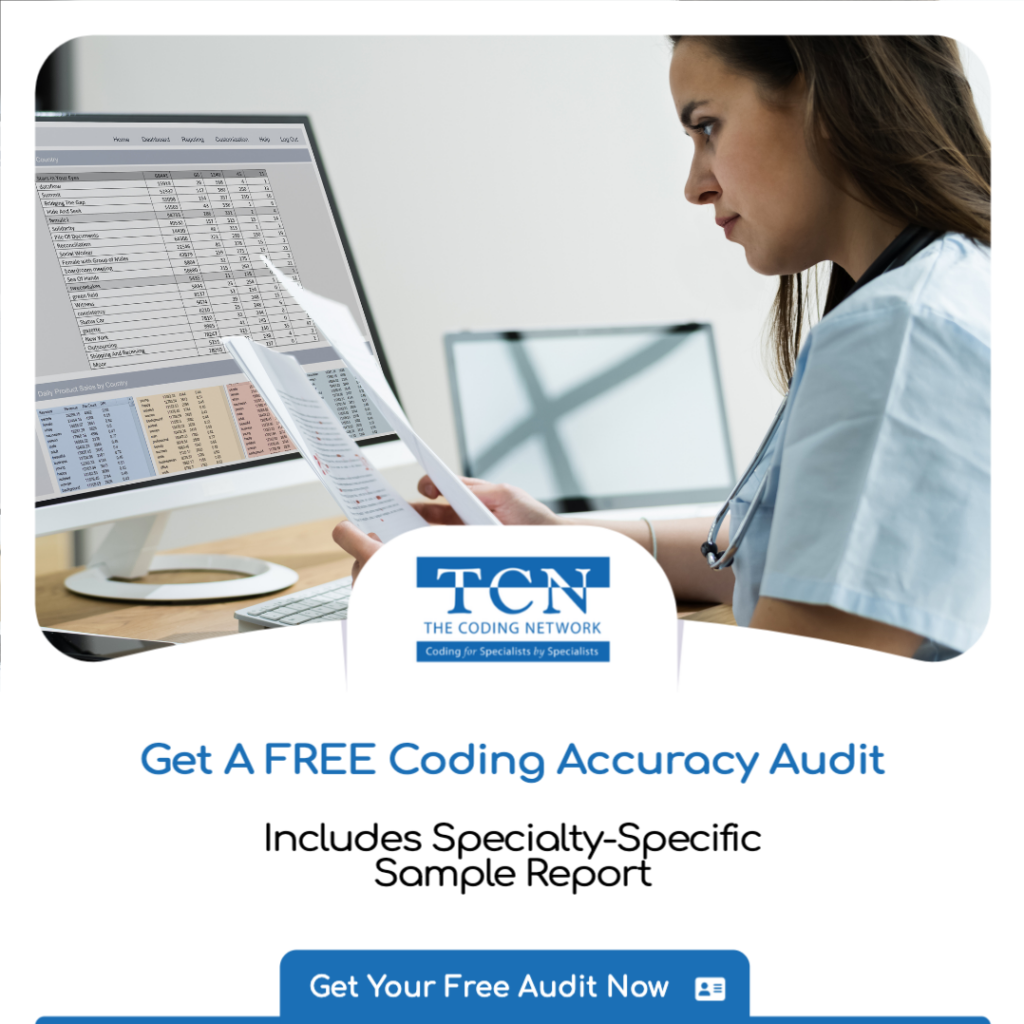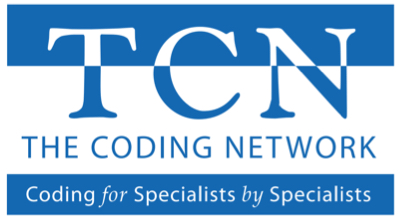HCC Coding Audits
The Coding Network offers specialized HCC Audit Services designed to meet the unique needs of healthcare organizations of all sizes. Our audits are meticulously tailored to consider various critical factors such as volume, organization size, resource quality, provider specialties, and patient population demographics. Our goal is to ensure that your organization achieves the highest standards of accuracy and compliance in HCC coding, thereby optimizing your revenue cycle and enhancing patient care quality.
Comprehensive HCC Audit Solutions
Our HCC Audit Services are structured to provide a thorough examination of your HCC coding practices, identifying areas of risk and opportunities to ensure compliance with regulatory standards and to optimize financial outcomes. Here’s how we can support your organization:
Volume and Organization Size Consideration: We customize our audit strategies to align with the size of your organization and the volume of patients you serve, ensuring a scalable approach that meets your specific needs.
Resource Quality Assessment: Our audits evaluate the quality of your coding resources, including technology and human capital, to identify areas for improvement and ensure your coding practices are supported by the best available resources.
Provider and Specialty-Specific Audits: Recognizing the diversity in healthcare services, our audits are tailored to the specific specialties and services offered by your providers, ensuring that nuances in coding practices are accurately addressed.
Patient Population Analysis: We consider the demographics and health status of your patient population, ensuring that your HCC coding accurately reflects the complexity of care required and provided.
Why Choose The Coding Network for HCC Audits?
Expertise and Experience: Our team of certified coders and auditors brings unparalleled expertise and years of experience in HCC coding and audits,
ensuring that your organization benefits from the highest level of professional service.
Customized Audit Plans: We understand that each healthcare organization is unique. Our HCC Audit Services are highly customizable and designed to meet
the specific challenges and opportunities of your organization.
Actionable Insights: Beyond identifying compliance risks and coding inaccuracies, our audits provide actionable insights and recommendations for
improvement, supporting your ongoing efforts to enhance coding practices and financial performance.
Ongoing Support and Education: Post-audit, we offer ongoing support and education to help your team implement recommended changes, ensuring lasting improvements in coding accuracy and compliance.
Elevate Your HCC Coding and Compliance with TCN’s HCC Audit Services
In the complex landscape of HCC coding and risk adjustment, regular and thorough audits are essential to maintaining compliance, optimizing revenue, and ultimately supporting the delivery of high-quality patient care. The Coding Network’s HCC Audit Services are designed to provide healthcare organizations with the confidence that their HCC coding practices are accurate, compliant, and optimized for their specific needs.
Contact us today to learn more about how our HCC Audit Services can help your organization achieve its financial and clinical goals, ensuring a future of success and stability in the healthcare market.

Latest Blog Posts:
Need Professional Medical Coding Assistance: Why Using Your Doctors To Code Is Not Free
In today’s fast-paced healthcare environment, efficiency and accuracy are non-negotiable. Every medical practice, hospital, and healthcare system strives to optimize revenue, ensure compliance, and deliver exceptional patient care. One area that often flies under the [...]
Medical Coding Compliance: The Good, the Bad, and the Ugly
In today's complex healthcare landscape, maintaining coding compliance is more crucial than ever. Recent developments from the Department of Justice (DOJ), including the launch of the Corporate Whistleblower Awards Pilot Program (CWAPP), have further emphasized [...]
The DOJ’s New Whistleblower Program: A Vital Step for Medical Coding Compliance
On August 1, 2024, the U.S. Department of Justice (DOJ) launched its Corporate Whistleblower Awards Pilot Program. This initiative is a significant development in the DOJ's efforts to uncover corporate misconduct, particularly in areas not [...]
Coding Compliance Audits: Uncovering Deficiencies and Solutions
In an era where healthcare systems are intricately tied to digital platforms, meticulous coding accuracy cannot be a mere afterthought; it is an absolute necessity. Often overlooked, coding errors are the silent killers of compliance [...]




